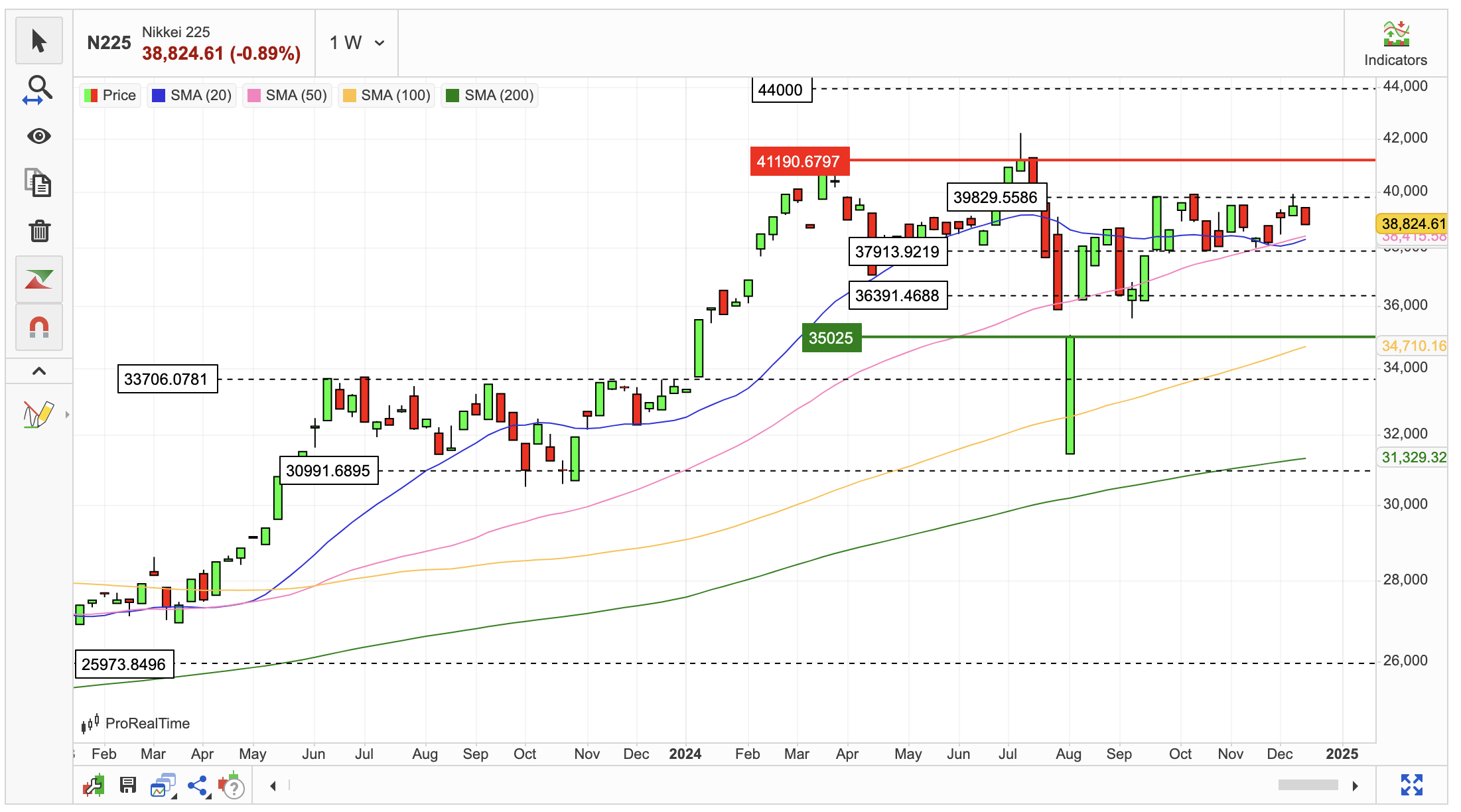BOJ Holds Rates, Nikkei Falls 0.85%
- This topic has 0 replies, 1 voice, and was last updated 4 months ago by .
-
Topic
-
Japan’s stock market closed lower on Wednesday after the Bank of Japan (BOJ) surprised investors by maintaining its benchmark interest rate at 0.25%, defying economists’ expectations of a potential rate hike.
The decision reaffirmed the BOJ’s commitment to its ultra-loose monetary policy, even as inflation in Japan remains above its 2% target, fuelled by rising energy costs and a weaker yen.
The BOJ’s announcement rattled markets, leading the Nikkei 225 to drop 0.85%, closing at 32,450.
Weakness in export-driven sectors like automobiles and technology weighed heavily on the index, as the yen initially declined further against the dollar before stabilising.
The broader Topix index also fell 0.73%, reflecting widespread declines across multiple sectors.
Investors had been increasingly pricing in a more hawkish stance from the BOJ amid growing pressure to address rising prices and curb capital outflows.
However, Governor Kazuo Ueda emphasized in his statement that the Japanese economy is still grappling with fragile domestic demand and the need for sustained monetary support.
This cautious approach reinforced concerns about Japan’s divergence from other major central banks, which have been tightening policies to combat inflation.
Trading volumes on the Tokyo Stock Exchange were elevated, reflecting heightened market activity as investors adjusted positions following the unexpected policy decision.
Financial stocks, particularly banks, saw notable declines, as the BOJ’s commitment to low rates diminishes prospects for higher lending margins. Conversely, real estate and utility stocks saw modest gains, benefiting from the prolonged low-interest-rate environment.
The market’s reaction highlights the uncertainty surrounding Japan’s economic trajectory and the challenges faced by the BOJ in balancing inflation management with the need to support growth.
With global markets increasingly sensitive to central bank policies, the BOJ’s decision has added to the cautious sentiment among investors as the year draws to a close.
